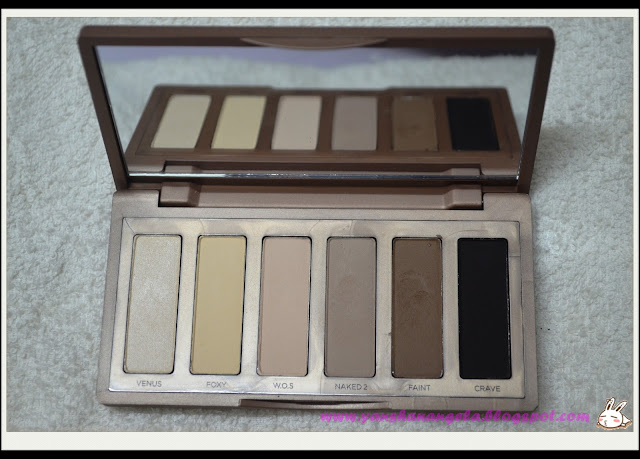
Types of wisdom tooth


1) What is the age your wisdom tooth should erupt?
2) How if my wisdom tooth is not erupted within this age range?
3) Do you have to worry if your wisdom tooth does not erupt at all?
4) Why is eruption of wisdom tooth so complicated?
5) What is the cause of pain in wisdom tooth?
6) When to extract/remove a wisdom tooth?
7) What is the procedure in extraction of wisdom tooth?
8) What are the precaution after the extraction?
9) What are the complications of extracting wisdom tooth?
10) Management of complications after surgery
1) What is the age your wisdom tooth should erupt?
- 17-21 years old
2) How if my wisdom tooth is not erupted within this age range?
- This is really common. Just be patient. I'm 25 and my wisdom tooth is still not out yet although it is fully formed when seen under x Ray.
3) Do you have to worry if your wisdom tooth does not erupt at all?
- There is nothing to worry about. Some people are born without wisdom tooth. Some has fully formed tooth but it never erupts and stays in the jaw. There is although a possible risk of developing a cyst (dentigerous cyst) if it remains inside the jaw but the possible complications of the extraction overall outweighs the risk.
4) Why is eruption of wisdom tooth so complicated?
- This is because there is not sufficient space in the jaw for the tooth to erupt. Therefore it is stuck halfway and erupts partially. It may also be due to the position of the tooth bud before the formation of the tooth. Of course there are also many other reasons for this unpredictable pattern like density of bone, chronic inflammation, and so on.
5) What is the cause of pain in wisdom tooth?
- The pain is usually due to gum inflammation. As the wisdom tooth area is right at the back of the jaw, cleaning of the area might be difficult. Further more when the tooth is partially erupted, food tends to get stuck in the space created between the gums and tooth. If the area is not properly cleaned, the food gets fermented and bacteria grow in that region consequently causing gum inflammation. If it is not treated, the gums swells up and you might get abscess in that area causing intense pain in the back of the jaw radiating to the ear.
6) When to extract/remove a wisdom tooth?

- if it doesn't cause any pain or discomfort and cleaning of that region is adequate, it doesn't need to be extracted.
- examples of when to remove the tooth:
a) follicular enlargement (cyst formation)
b) pericoronitis (inflammation of gum surrounding the tooth
c) non-restorable carious lesions (extensive decay of tooth which cannot be treated)
d) resorption and decay of adjacent teeth
7) What is the procedure in extraction of wisdom tooth?
- Local anaesthetic administration
- Gums around the wisdom tooth will be reflected.
- Some amount of bone will be removed to increase visibility.
- Extraction of the wisdom tooth
- Wound closure or suturing of the gums.
8) What are the precaution after the extraction? (applies for extraction of any tooth)
- Bite down gently but firmly on the gauze packs that have been placed over the surgical areas for 1 hour. Replace the gauze and bite for another 30 mintues.
- Do not smoke after surgery for at least 1 week.
- Do not rinse or spit vigorously or probe the area with any objects.
- You should brush your teeth the night of surgery, but be gentle around the surgical sites.
- Do not use a straw for the first few days after surgery.
- Avoid extremely hot foods.
- Take cold food.
- Avoid chewing food until tongue sensation has returned.
- Avoid food which may get lodged in the socket areas.
- Eat any nourishing food that can be taken with comfort.
- Exercise should be avoided for 3-4 days following surgery.

9) What are the complications of extracting wisdom tooth?
Complications which may happen during the surgery:
- jaw fracture
- damage of adjacent teeth, tooth
- tooth fragments displacement into soft tissues and bleeding.
- inferior alveolar nerve injury causing paresthesia (altered sensation) or anasthesia (loss of sensation) in the region of the skin of the mental area, the lower lip, mucous membranes, and the gums
- lingual nerve injury leading to numbness of the anterior two thirds of the tongue and taste disturbance on the same side of surgery area.
Typical complications after the surgery:
- pain
- swelling
- bruising
- trismus ( limitation in mouth opening)
- osteitis ( inflammation of bone)
- surgical site infection/ non healing socket

10) Management of complications after surgery
- Minimal bleeding will occur after surgery, for 24-48 hours after surgery.

10) Management of complications after surgery
- Minimal bleeding will occur after surgery, for 24-48 hours after surgery.
Placing a gauze pack over the area and biting firmly will control bleeding. Salt water rinses may begin 24 hours after surgery (mix 1 tablespoon of salt with 8 ounces of water.) Swish gently and allow the water to drip into the sink. Rinses should be done 2-3 times a day, especially after eating.
- Swelling can be minimized by using a cold pack, ice bag or a bag of frozen peas wrapped in a towel and applied firmly to the cheek adjacent to the surgical area. This should be applied 20 minutes on and off during the first 24 hours after surgery.
- Swelling can be minimized by using a cold pack, ice bag or a bag of frozen peas wrapped in a towel and applied firmly to the cheek adjacent to the surgical area. This should be applied 20 minutes on and off during the first 24 hours after surgery.
There will be discolouration or bruising of face which is blue, green or yellow appearing 2-3 days after surgery. Beginning 36 hours after the surgery, apply moist heat over the area.
- There will also be pain after the surgery. You will usually have a prescription for pain medication.
- There will also be pain after the surgery. You will usually have a prescription for pain medication.
- Limitation in opening the mouth wide for a few days after surgery. This is a normal post-operative event that usually resolves during the week after surgery. Stretching these muscles may help to speed up resolution of this problem.
*** If bleeding, swelling, pain persist even after 3-4 days, you should consult your dentist.
Thanks for reading, xoxo

























































